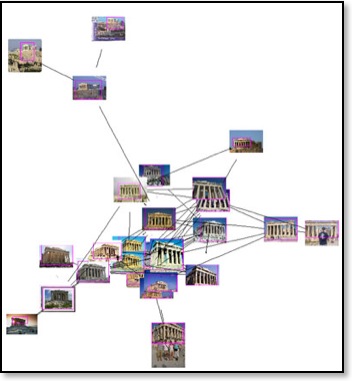Samples out for the Indexing Companion Workbook!
08/20/09 10:45 Filed in: indexing
Check it
out here!
Can't wait to see the whole book, Glenda and Jon!
Can't wait to see the whole book, Glenda and Jon!
This is funny
08/16/09 10:43 Filed in: silliness
Who needs a
logo designer for your business cards or web site,
when you can get this:

"Make My Logo Bigger cream," and more

"Make My Logo Bigger cream," and more
Where are the women?
08/11/09 10:42 Filed in: miscellany
From
Fast Company
When you look around the room at a tech or social media conference what do you see? Are the panels filled with a diverse group of tech and social media experts? Chances are they are probably filled with white men. So why is that a bad thing, when after all, the tech sector is comprised of about 75% men and 25% women? It’s a problem because when we design technology and social media platforms we design it for all. Women make up approximately 50% of computer and social media users. By not filling panels with diverse speakers, we tend to give conference attendees only male perspectives on tech and social media, when in reality our consumers and users are men, women, people of color, etc.
The lack of women represented at tech conferences has been discussed and debated for years, though it has not been a hot button issue publically as it has been privately until now (Women Snubbed in Top Ten Speakers List, Diversifying Speakers at Tech and Social Media Conferences, At the Ideas Conference, Women Don't Have Any).
This is a question I have been asking for a long time. I ask it when Wired comes out with its issues of the "top 100 important people." When Time or Newsweek does the same.
Indexers seem to be much more gender-balanced at presentations and conferences, but what do you think the proportions of male to female indexers over all are in our field? My impression is that this is a heavily female field, and that many of the males lean towards the technical end, but that's just my impression.
When you look around the room at a tech or social media conference what do you see? Are the panels filled with a diverse group of tech and social media experts? Chances are they are probably filled with white men. So why is that a bad thing, when after all, the tech sector is comprised of about 75% men and 25% women? It’s a problem because when we design technology and social media platforms we design it for all. Women make up approximately 50% of computer and social media users. By not filling panels with diverse speakers, we tend to give conference attendees only male perspectives on tech and social media, when in reality our consumers and users are men, women, people of color, etc.
The lack of women represented at tech conferences has been discussed and debated for years, though it has not been a hot button issue publically as it has been privately until now (Women Snubbed in Top Ten Speakers List, Diversifying Speakers at Tech and Social Media Conferences, At the Ideas Conference, Women Don't Have Any).
This is a question I have been asking for a long time. I ask it when Wired comes out with its issues of the "top 100 important people." When Time or Newsweek does the same.
Indexers seem to be much more gender-balanced at presentations and conferences, but what do you think the proportions of male to female indexers over all are in our field? My impression is that this is a heavily female field, and that many of the males lean towards the technical end, but that's just my impression.
Indexes are not TOCs!
08/09/09 10:41 Filed in: indexing
The help
system on my blackberry is about the most frustrating
thing I have ever seen. I can't find anything about
vibrating and ringing options. Oh, they are called
notifications! How intuitive! Each little help topic
has a link for INDEX -- and it leads to the table of
contents. NO NO NO!
Documentation in tough times
08/07/09 10:40 Filed in: publishing
From an
interesting article by Mike Hughes....
A managed compromise is one where something gets left undone, because you made a rational decision to leave it undone. An unintended compromise is one where something gets left undone, because you ran out of time at the end of a project. For example, a Help file might not include an index, because you decided creating one was too costly a use of resources, and users could use the search function instead. We might debate whether that was a good decision, but we can all agree that it was a decision based on thoughtful analysis. Or the Help file might not include an index, because you barely finished the topics in time for release as it was, never mind an index. We might debate whether that would cause a big problem for users, but we can all agree that it did not happen that way because you planned it that way; it just happened.
Hughes sets up a hockey stick metaphor, and explains that in terms of cost and time, it is worthwhile to do everything up to the knee of the hockey stick, and then you have diminishing returns. Unfortunately, we are seeing the index winding up being whacked by the hockey stick.
A managed compromise is one where something gets left undone, because you made a rational decision to leave it undone. An unintended compromise is one where something gets left undone, because you ran out of time at the end of a project. For example, a Help file might not include an index, because you decided creating one was too costly a use of resources, and users could use the search function instead. We might debate whether that was a good decision, but we can all agree that it was a decision based on thoughtful analysis. Or the Help file might not include an index, because you barely finished the topics in time for release as it was, never mind an index. We might debate whether that would cause a big problem for users, but we can all agree that it did not happen that way because you planned it that way; it just happened.
Hughes sets up a hockey stick metaphor, and explains that in terms of cost and time, it is worthwhile to do everything up to the knee of the hockey stick, and then you have diminishing returns. Unfortunately, we are seeing the index winding up being whacked by the hockey stick.
Google is going to find landmarks
08/01/09 10:38 Filed in: search
From
Scientific American:

While it's possible to search the Web for images, there's still no way of searching the images themselves. Google is hoping to change this through a research project that can match digital photos of certain famous landmarks with text descriptions of those landmarks (including their namesname and where they're located) without the need for a conventional search engine.
Google created its experimental landmark recognition engine by developing a list of targeted landmarks (such as the Eiffel Tower and the Acropolis in Athens) and finding GPS-tagged digital photos of those locations. The researchers then "taught" the recognition engine to identify specific landmarks by clustering different images of the same landmark (taken in different lighting and from different angles, for example).

While it's possible to search the Web for images, there's still no way of searching the images themselves. Google is hoping to change this through a research project that can match digital photos of certain famous landmarks with text descriptions of those landmarks (including their namesname and where they're located) without the need for a conventional search engine.
Google created its experimental landmark recognition engine by developing a list of targeted landmarks (such as the Eiffel Tower and the Acropolis in Athens) and finding GPS-tagged digital photos of those locations. The researchers then "taught" the recognition engine to identify specific landmarks by clustering different images of the same landmark (taken in different lighting and from different angles, for example).